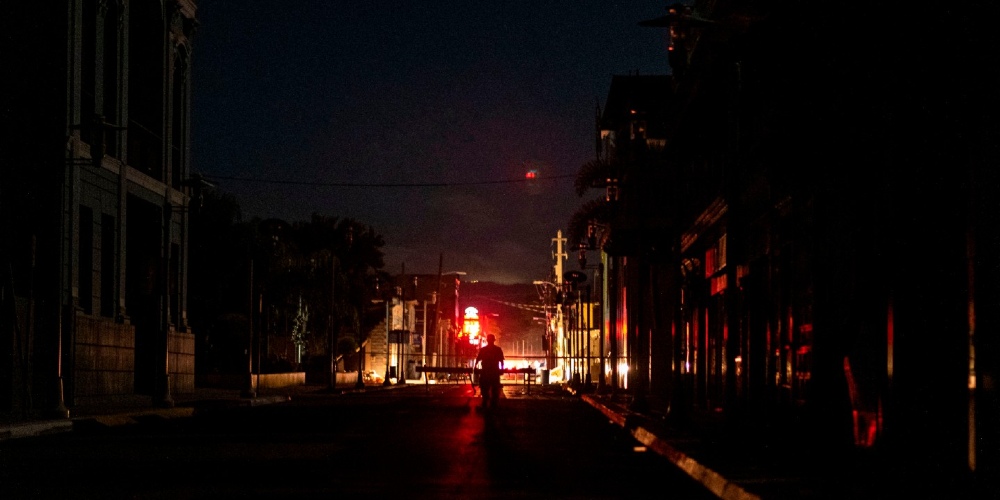-
Learn the TRUTH about Gold IRAs and how most precious metals companies play dirty.
Being prepared for a possible power grid collapse is a must. The power grid can shut down for an extended period for a variety of reasons, such as wildfires, hurricanes, tornadoes, mismanagement, sagging lines and high winds.
Having a prepper’s mindset is an advantage. Here are 12 things you need to prepare to survive a power grid collapse. (Related: Prepping tips: How to survive a long-term power outage.)
Light
When the power grid fails, you must have a flashlight at your home. Place flashlights in your bedroom, bathroom, kitchen, garage, vehicle and one close to your electrical panel.
Having spare flashlights is a good plan. It is much better if you have rechargeable batteries on hand for those flashlights.
Oil lamps and candles are other probable lighting sources, but they can cause fire. Candles and lamps can be an advantage when you need heat, especially in cold climates.
Having a crank-powered flashlight is good, especially if it can serve as a flashlight and a backup charger for emergencies.
Batteries
Flashlights are good, but you have to make sure that their batteries don’t go out easily.
Having batteries with long storage life is also essential. Also make sure to have rechargeable batteries and a good charger.
Rechargeable batteries can be costly but can save you a lot of money over a long period of time.
Water
Having cases of water bottles around during power outages is essential. It is better that you rotate your water storage since water will go stale after extended storage. Keeping a 55-gallon drinking potable water drum with a pump can be useful in emergencies, especially if you don’t have a substitute water source.
Toilet
Nature calls whether the power is out or not. You need to stock up on extra toilet paper.
With long-term grid down situations, toilets aren’t likely to work. Know where your poop goes.
It might be necessary to poop on a newspaper, or in a DIY Emergency Toilet and store waste in a black plastic bags. Have some wet wipes available for clean up.
Garbage bags
Having lots of heavy-duty garbage bags is a must. You should also plan ahead for your garbage management.
If you use paper plates and plastic silverware so you have less or no dish washing, that means more garbage.
Garbage bags can also be makeshift tarps if a window is blown out, or you need to make something partly waterproof temporarily.
Backup power
Having a generator is important, especially if you have the funds. Of course, you need to learn how to use it.
You must have a heavy-duty extension cord to power your appliances and you can hire an electrician to hardwire your home’s electrical system.
If you are using natural gas, you might consider using a natural gas generator.
You can also use solar panels, but they are an expensive option compared to a generator. If you are already using solar panels, you should focus on home battery solutions.
Off-grid cooking tools and supplies
Learn how to cook your meal without electricity. Practice no-electricity cooking regularly so that you will know how to do it and make sure you have the much-needed equipment.
Use outdoor grills and have extra bags of charcoal. You should also consider having extra propane tanks.
Use indoor gas ranges/stoves that will work when there is a power outage. You can also purchase a portable gas stove.
Food that you eat daily
Begin to stock more of the food that you regularly eat. Focus on food that you can store without electricity.
Stockpile food that is on sale since it costs less. Remember to eat your oldest food first. Since you eat daily, it will keep your stock of food fresh.
Ensure that you have food supplies enough to last for a week if not more. Make sure you can process and prepare your food without electric power.
Have a three-day food supply for everyone in your family. You can also complement it with freeze-dried or canned foods that you like.
Heating and cooling equipment and supplies
For people living in cold climates, it is best to consider an indoor safe heater to keep you warm. You also need to get extra propane tanks.
If you have a fireplace or woodstove, it is better to store firewood.
Communication tools
Your cell phone battery will eventually be drained of power so you should have a solar charger, car charger, extra power battery pack and crank USB charger.
Have a written or printed-out list of key phone numbers along with local paper maps so you can get to where you are going and when your GPS isn’t working.
Have a crank-powered radio so you can listen to emergency broadcasts and TV broadcasts.
First aid supplies
Make sure that you have your own first aid kit. Have one first aid kit for your home, in your vehicle and at your work. You should have enough first aid supplies that will enable you to survive for a week.
Learn CPR and basic first aid training and make sure that members of your family are properly trained as well.
Money and other items
Businesses that are open may only be able to take cash, or only take credit. It’s good to have both on hand, especially small bills.
A deck of cards and board games, meanwhile, can be useful when you feel bored and want to pass the time.
Find more articles with survival tips at Survival.news.
Watch this video to learn more about power grid collapse.
This video is from the Prosciencetruth channel on Brighteon.com.
Follow Preparedness.News for more news related to prepping.
More related stories:
- Trump orders nationwide preparation against power grid collapse initiated by cyber warfare.
- The three biggest stories of 2019 that indicate a collapse of the power grid is imminent.
- Tips to prepare for a nationwide power grid failure.
Sources include:




